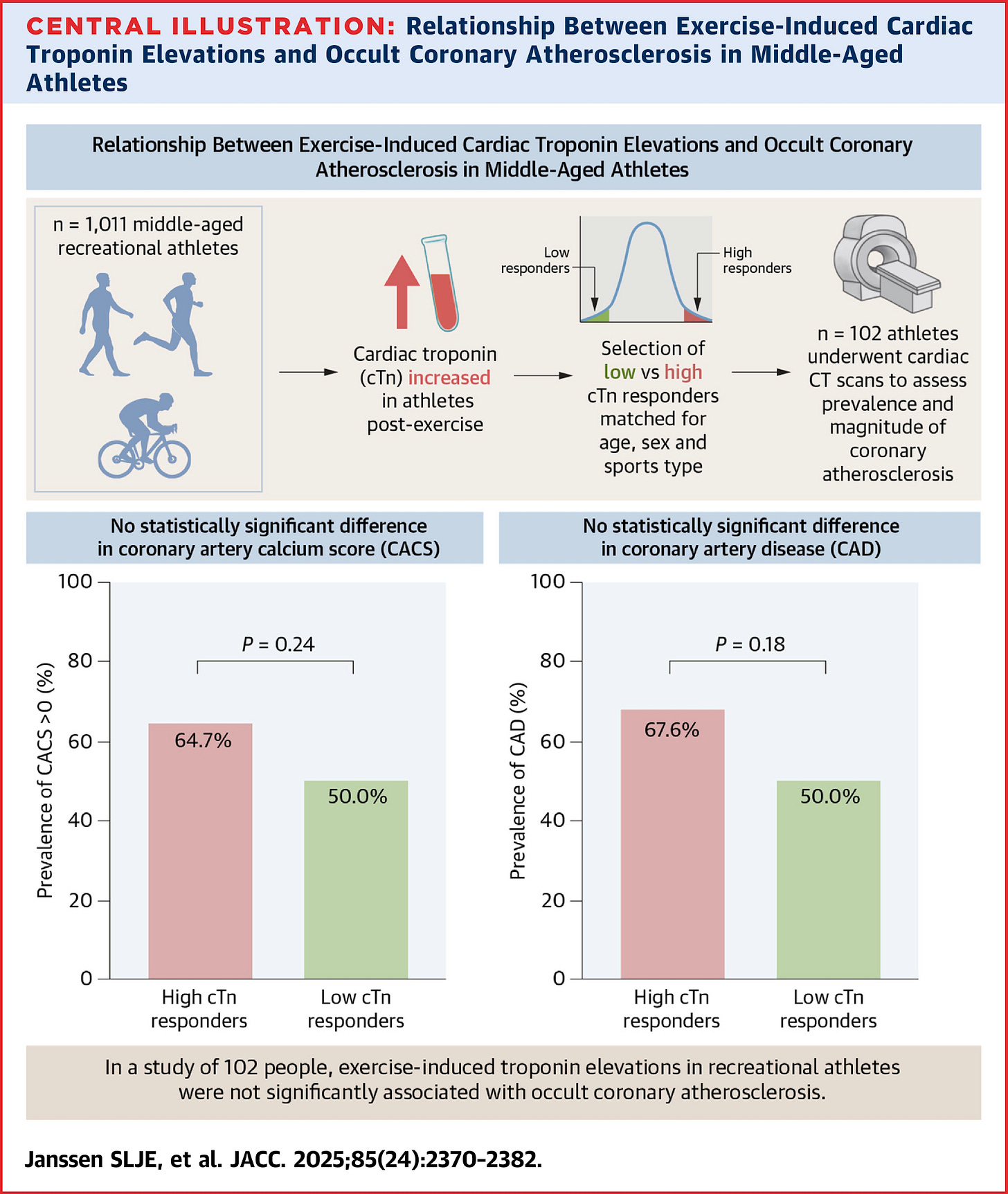Is More "Exercise Troponin" Bad?
This study doesn't really answer that question.
The traditional thinking: more troponin is bad troponin. Healthy cardiac myocytes aren’t supposed to leak troponin into the blood. This is why circulating troponin levels are part of the evaluation for acute coronary syndromes.
What, then, to make of individuals who have elevated troponin levels as a response to vigorous exercise? Would this be a marker of occult cardiovascular disease?
This study sampled troponin levels on 1,000 individuals following exercise, and then focused on the edges of the bell curve as far as troponin levels. In those edge cases, study authors performed CT coronary angiograms and calcium scoring as in the following study summary:
The winner is “no difference”, and, even though these results are suggestive of a small difference, the sampling is truly small enough these observations could be the result of random chance alone.
That said, I’ll still circle back to the “no troponin is good troponin”. A difference in troponin leak after vigorous exercise may not be associated with atherosclerosis on advanced imaging, but could still be a marker of poorer microvascular health. This is certainly not an entirely reassuring tale.

